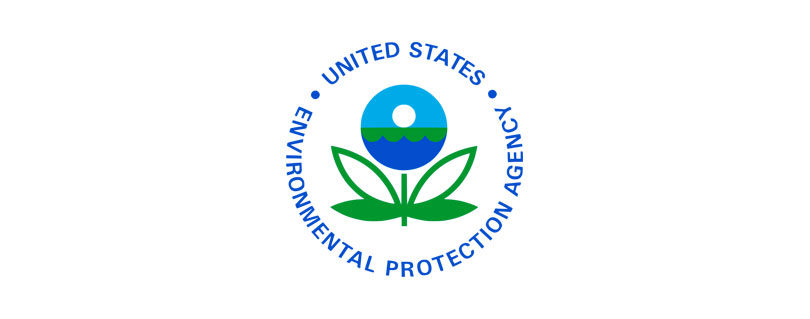Georgia to benefit from $1,457,600 in grant funding by Biden-Harris Administration to support clean U.S. manufacturing of construction materials
Publilshed by the U.S. Environmental Protection Agency (EPA)
ATLANTA (July 17, 2024) – The U.S. Environmental Protection Agency (EPA) announced that Georgia will benefit from two grants totaling approximately $1,457,600 to support efforts to report and reduce climate pollution from the manufacturing of construction materials. EPA estimates that the construction of buildings and other built infrastructure accounts for more than 15% of annual global greenhouse gas emissions.
Billions of tons of concrete, asphalt, steel, glass and other construction materials and products are required to build, maintain and operate our country’s buildings and infrastructure. The U.S. leads the world in the production of clean construction materials, and these transformative awards from President Biden’s Inflation Reduction Act—the largest climate investment in history–will reduce climate pollution by helping businesses measure the carbon emissions associated with extracting, transporting and manufacturing their products.
The grants will support the Biden-Harris Administration’s Federal Buy Clean Initiative, which leverages the U.S. government’s sway as the largest purchaser on Earth to catalyze demand for clean construction materials used in federal buildings, highways, and infrastructure projects. The grants will be awarded to businesses, universities and nonprofit organizations serving all 50 states and will help disclose the environmental impacts associated with manufacturing concrete, asphalt, glass, steel, wood and other materials.
- Atlas Roofing Corporation has been selected to receive $733,940 for work in 18 states, including Georgia. Atlas Roofing Corporation is a provider of asphalt shingles, roof underlayments, rigid expanded polystyrene and polyiso insulation, geofoam, cold chain, protective packaging, lost foam, and coated and paper facers and underlayments, produced from four segmented divisions: Polyiso Roof & Wall Insulation, Shingle and Underlayment, Molded Products and Web Technologies. The project will develop detailed life cycle assessments and verified environmental product declarations (EPDs) for the products it manufactures. The company will also develop a life cycle inventory of glass facer products used in the production of insulation and roofing materials to advance industry-wide transparency. By providing precise impact data associated with different products, Atlas Roofing Corporation will empower building designers to select less impactful materials and contribute to a more accurate understanding of the nuances of sustainability considerations across the roofing industry.
- Atlanta-based Belter Tech, Inc. has been selected to receive $723,660. Belter Tech is addressing the global environmental impact of construction by combating greenhouse gas emissions and utilizing waste glass, plastics and polyisocyanurate foam from landfills for aggregate in cement/concrete production. Belter Tech’s project will focus on contributing new and critical data for producing high-quality EPDs for alternative aggregate products and to establish robust tools to make the EPD process easier, faster, and more cost effective for carbon capturing products. Their project to develop EPDs for sustainable construction materials will enhance transparency and efficiency in carbon-capturing product certification. In addition, Belter Tech will lower its greenhouse gas emissions and achieve net-zero carbon neutrality by 2025.
“As America continues to build more and upgrade our nation’s infrastructure under President Biden’s leadership, cleaner construction materials like concrete and steel are increasingly essential for the nation’s prosperity,” said EPA Deputy Administrator Janet McCabe. “These historic investments will expand market access for a new generation of more climate-friendly construction materials, and further grow American jobs that are paving the way to the clean energy economy.”
The grants will help businesses develop robust, high-quality EPDs, which show environmental impacts across the life of a product and can catalyze more sustainable purchasing decisions by allowing buyers to compare. Investments in data and tools will make high-quality EPDs available for 14 material categories, which include both new and salvaged or reused materials. These efforts will help standardize and expand the market for construction products with lower greenhouse gas emissions. They will make it easier for federal, state and local governments and other institutional buyers to ensure the construction projects they fund use more climate-friendly products and materials.
EPA is also announcing expanded technical assistance opportunities to businesses, the federal government and other organizations across America. EPA will initially offer EPD development support and direct businesses to resources to help them measure and reduce the embodied carbon associated with their materials, such as those provided by the ENERGY STAR Industrial program. Federal agencies and their suppliers will be able to compare the climate impact of various materials to drive near-term greenhouse gas emissions reductions. Robust EPD data will be further strengthened by a new label program under development that will identify low carbon construction materials for the growing Buy Clean marketplace.
Together, the grants and technical assistance programs will reduce greenhouse gas emissions and support American jobs. These programs are made possible by the Biden Administration’s Inflation Reduction Act of 2022, which creates significant investments aimed at reducing greenhouse gas emissions associated with the extraction, transport and manufacturing of construction materials and products. The Inflation Reduction Act also provides more than $2 billion to the General Services Administration to use low embodied carbon materials in the construction and renovation of federal buildings and $2 billion to the Federal Highway Administration to incentivize or reimburse the use of low embodied carbon construction materials in certain transportation projects.
Selections are contingent upon completion of legal and administrative requirements and grantees are tentatively expected to receive their funding in late summer.
Read the full article at: https://www.epa.gov/newsreleases/georgia-benefit-1457600-grant-funding-biden-harris-administration-support-clean-us


